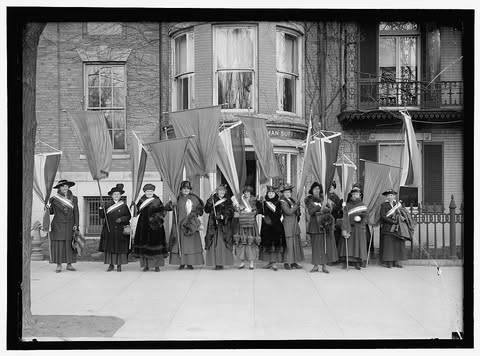#libraries for freedom
Explore tagged Tumblr posts
Text

🇺🇲

4 notes
·
View notes
Text
instagram
🇺🇲

#Instagram#marthastewart48#ok fine martha#popcynic#deadpool and wolverine#formula 1#dungeon meshi#hugh jackson#gravity falls#tumblr milestone#libraries for freedom#DEAR
3 notes
·
View notes
Text
instagram
🇨🇦🇺🇲








#Instagram#nhljets#sport for freedom#spud#DEAR#libraries for freedom#(i can be hammy)#lits auth#John HAMS.
2 notes
·
View notes
Text
instagram
🇨🇦

2 notes
·
View notes
Text
instagram
🇺🇲




#Instagram#usmarshalshq#never forget#dogs fmm#smelllelllo🟡#⚪🩵#librararianofcongress#librarycongress#libraries for freedom#DEAR#spuddy
1 note
·
View note
Text
instagram
🇺🇸



0 notes
Text


Direct action, simply put, means cutting out the middleman: solving problems yourself rather than petitioning the authorities or relying on external institutions. Any action that sidesteps regulations and representation to accomplish goals directly is direct action—it includes everything from blockading airports to helping refugees escape to safety and organizing programs to liberate your community from reliance on capitalism. Here we present a step-by-step guide to organizing and carrying out direct action, from the first planning stages to the debrief at the end, including legal support, media strategy, and proper security.
There are countless scenarios in which you might want to employ direct action. Perhaps representatives of despicable multinational corporations are invading your town to hold a meeting, and you want to do more than simply hold a sign; perhaps they’ve been there a long time, operating franchises that exploit workers and ravage the environment, and you want to hinder their misdeeds; perhaps you want to organize a festive, community-oriented event such as a street party. Direct action can plant a public garden in an abandoned lot or defend it by paralyzing bulldozers; it can occupy empty buildings to house the homeless or shut down government offices. Whether you’re acting in secret with a trusted friend or in a mass action with thousands of people, the basic elements are the same.
#direct action#how-to#guides#manuals#anarchism#anarchy#anarchist society#practical anarchy#practical anarchism#resistance#autonomy#revolution#communism#anti capitalist#anti capitalism#late stage capitalism#daily posts#libraries#leftism#social issues#anarchy works#anarchist library#survival#freedom#CrimethInc
2K notes
·
View notes
Text
This afternoon, DOGE fired every employee at the Institute for Museum and Library Services, deleted their emails, and vanished federal funding for public libraries and museums.
They won't be so bold as to burn the books, but they will greatly limit your access. When the good learn, so do the evil.
When you really think about it, it's financial abuse. Institutions are being held hostage financially to bow to the whims of another or risk no longer existing. I don't even know if I feel angry at the institutions that have decided to bow because, at the very least, they are still available and able to help others with the few resources they have left. It's fucked all the way around.
We should bring back independent/community-supported pamphlets. (See: political pamphlets of the 1800's and Jstor's collection of 19th century British Pamphlets) Most of these efforts now exist on social media but are heavily censored via algorithms. What we need is something offline that can't be limited with the push of a button. Something tangible.
You can literally leave them behind anywhere like a lost glove. There's a lot of power in that. We could even offer QR codes on the physical copies so that viewing it online is still an option. I think the internet is too volatile a place at the moment to remain our sole source of information. It's too easily manipulated, the algorithms keep us in a vacuum, and there are too many bots proven to incite rage and prevent productive discourse. We need something people-oriented. I think zines would be perfect. They want the old ways back, so let's give it to them along with all the revolutionary efforts that come with it.
#jstor#jstor my beloved#history#19th century#1800s#american politics#us politics#freedom of the press#books & libraries#support libraries#libraries#public libraries#books and libraries#fahrenheit 451#archives#museum#art history#free the arts#zine#academia#university#education rights#human rights#protest
334 notes
·
View notes
Text
Texas Residents!
Help us stop HB 3225 in Committee. HB 3225 to be heard by the State Affairs Committee Meeting on Monday, April 14 at 8AM
Provide In-Person Testimony (ATX) or Submit Written Comment (Online) against HB 3225
What does the bill do?
First, it forbids municipal public libraries from allowing anyone under 18 to access “sexually explicit” materials (the quotation marks are important). It also says a public library may not “curate, display, or make available for checkout any sexually explicit material in any minor ’s section of the library.”
The bill also uses an exceptionally broad definition of “sexually explicit.” It defines sexual conduct as “sexual contact, actual or simulated sexual intercourse, deviate sexual intercourse, sexual bestiality, masturbation, sado-masochistic abuse, or lewd exhibition of the genitals, the anus, or any portion of the female breast below the top of the areola.” No, it doesn’t define what “sexual contact” means—does kissing count? Petting?
The bill defines “access” as “the ability to check out “be provided a copy” of a book in either a physical or electronic format. It’s not totally clear to me whether just browsing shelves counts as access or not. But even if not, in order to comply with the law, libraries would have to audit their entire collections for any possible book with any possible description of sexual contact and flag those books as off-limits for checkout by anyone under 18. Which would be a massive undertaking. Practically speaking, the only way a library could comply with this law is to segregate its adult and “minors” sections.
That means two things: First, that libraries would have to restrict anyone under 18 to children’s/teen/YA sections—they could not be allowed into the library’s sections for the general (adult) public, where they might encounter “sexually explicit” books. Second, it would restrict the books that can be made available in those children’s/teen/YA sections. No sex-ed books, no descriptions of “sexual contact” in YA novels meant for older teens. Art books would be at risk, as would innocent books like Eric Carle’s Draw Me a Star and Maurice Sendak’s In the Night Kitchen.
How Can You Help?
1.) Written comments (can be submitted remotely and ahead of time): Can't testify in Austin on Monday? Texas residents can submit written comments through the Texas House's Online Public Comment form HERE. Be sure to select HB 3225. State that you are against the bill, and share why. The Committee Meeting Agenda states written comments will be accepted until Monday's hearing is adjourned.
2.) In-person verbal testimony: Witnesses are usually given 1-2 minutes to make their public comment on the bill they wish to speak about. You will need to declare your name, and whether you are speaking "for" "against" or "on" (neutral) HB 3225. Note, if you have more to say, than can fit in your given time, you can provide both in-person verbal, and online, written public comment. Be prepared to stay all day- bring food, water, chargers, electronics, books, and patience. Find out more about how to register, once you arrive at the Capitol, HERE.
For in-person verbal testimony, witnesses (you!) will need to arrive at the Texas Capitol and make your way to the John H. Reagan Building Room 120 (1400 Congress Ave., Austin, TX 78701) in time to sign in at a kiosk outside the meeting room before the meeting begins. Paid parking is available at the Capitol Garage found at 1201 San Jacinto Blvd, Austin, TX 78701.
Other Things To Keep In Mind:
The committee members may ask witnesses questions, so be prepared to answer them. It is okay to answer that you do not know and offer to get back to them with more information.
Emotion in your testimony is okay - just be respectful and speak calmly, clearly, and with purpose.
Write down and practice your testimony ahead of time. You can read from it during your turn to speak.
If you hear upsetting or inflammatory comments from other speakers, you need to maintain your composure in the room. Exit quietly if you need to excuse yourself and take a break.
Suggested Talking Points:
Speak from your heart and include short personal anecdotes.
Consider how HB3225 will impact access to books and resources for children, teens, and families in your community.
Consider how HB3225 limits your rights as a parent since there is no opt-in, opt-out requirement for you to decide what books and sections of the public library your minor child may access.
Share how unrestricted access to "adult" sections of the public library helped you grow, develop and learn as a child or teen, or how you have seen unrestricted access meet the needs of children in your life.
Share your thoughts on the government interfering with your rights as a parent to decide what books are not appropriate for your minor children and teens to read.
#texas#united states#politics#voting#book banning#boost#books & libraries#freedom of expression#freedom of mind#dont think for a second this isnt a way to come for queer people btw#it wont just be basic sex ed stuff thatll be inaccessible to minors but also queer books#this will be used to argue for these kinds of books to be banned altogether because a kid “could see” by walking through the full library#please share
171 notes
·
View notes
Text
tbh i did think that reading the WoT books after watching the show would either a) make me like the show less because there are quite a few differences between the two or b) not care as much about the books because i'm already attached to the showverse but plot twist! i'm having a great time reading and love the show more than ever.
#read new spring last month and almost done with the eye of the world now#i committed enough that i've bought the next two books instead of getting them from the library#lmao this is the first time in like a year that ive read more than 300 pages of a book in a day. i feel like a kid again#i dont want to go to bed now :( i want to keep reading my fantasy book :(#anyways people who are impassioned about one being so much better than the other are lying. theyre both really good#the books just have the benefit of being 800+ pages and more freedom to have a bigger story#and the show has the benefit of not being from the 90s#wheel of time#my posts
135 notes
·
View notes
Text
#tiktok#donald trump#fuck trump#us politics#president trump#trump#trump administration#us government#trump is the enemy of the people#trump's second term#trump's america#library of congress#karoline leavitt#fuck karoline leavitt#freedom of mind#freedom of speech#freedom of expression#book banning
74 notes
·
View notes
Text
instagram
🇺🇲

2 notes
·
View notes
Text

WINNIPEG SUN
1 note
·
View note
Text



#woman's world#week of september 2#2024#(items in perpetuity)#libraries for freedom#DEAR#Vanessa Williams#American Songwriter#Americon
1 note
·
View note
Text
instagram
🇺🇲

#Instagram#google#ok🟢#(((👁️)))#librararianofcongress#libraries for freedom#DEAR#photosynthesis#birds fmm
0 notes
Text
instagram
🇺🇸

0 notes